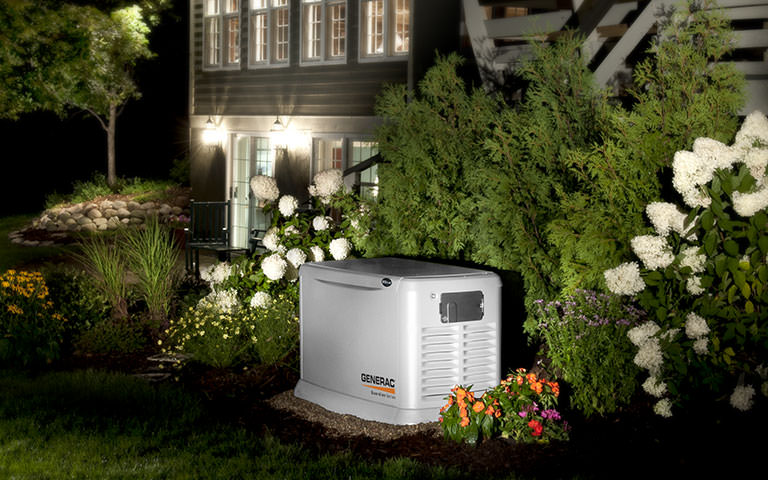
Learn more about home generators so you can be prepared in an emergency.
Home generators are widely used to provide power to appliances, devices, and home systems. When the power goes out at home, a generator provides backup power to charge the necessary devices. Depending on the type of generator, it might even feed electricity directly into the home electrical system, temporarily replacing the electric utility connection until the power is restored.
Having a large standby generator can help ensure that the home remains powered even when the electricity to the rest of the neighborhood is out. Find out more about the benefits and functionality of these appliances with this guide to home generators.
Home generators are essentially appliances that are capable of generating electricity by burning propane, gasoline, natural gas, or diesel. Depending on the type of generator, these appliances can connect directly to the home to power the entire electrical system in case of a power outage, or they can be packed into the car to provide backup power to a campsite.
A common question that is often asked about generators is how do home generators work? The basic function seems simple at first glance. Fill the fuel tank or connect the generator directly to the natural gas line to the home, then turn it on to generate electricity. However, the actual function is more complicated.
A generator burns propane, gasoline, natural gas, or diesel to generate mechanical energy, which is in turn used to create an electrical current by rotating an electromagnet called an armature within the stationary stator. This rotation generates a moving magnetic field around the stator, which induces a voltage difference between the coil windings. The voltage difference produces the electrical output of the generator.
Before purchasing a generator, it's necessary to have a firm grasp of information that can help answer the question: what size home generator do I need?
For emergency power outages at home, a standby generator is the best option. These appliances are installed in a fixed position outside the home and connect to the home electrical system through a transfer switch. Standby generators typically run on natural gas or propane, allowing them to connect directly to the home gas utility service. This means that the generator will never need to be refilled and it won't run out of fuel after a few hours of operation, so you can keep the power on at home for days or even weeks during an emergency.
Home generators range in cost to several thousand dollars for a standby generator.
While you can get a portable or inverter generator without any additional costs, that isn't the case with a standby generator. If you invest in a standby generator, make sure to budget for installation costs, including the cost to run a gas line directly to the generator.
The location of a generator is necessary to consider because generators produce noise and exhaust. No matter which type of generator you opt for, it should never be used indoors or in enclosed spaces, like a garage or shed. The exhaust produced by a generator can cause carbon monoxide poisoning, while its loud sound can harm your ears.
Regardless of the type, generators should never be used indoors or in enclosed spaces.
Before setting up the appliance, take a few minutes to consider where to install a home generator. A portable generator can be set up outside in a covered location at least 20 feet from open doors and windows. An inverter generator can be set up in a similar location outdoors. Keep in mind that portable and inverter generators are vulnerable to rain, sleet, and snow, so it's important to ensure these appliances are properly covered while outdoors.
Standby generators are designed for long-term use in poor weather. These appliances have built-in casing and weather-shielding, so the generator will not get damaged in rain, wind, or snow. However, standby generators should be installed at least 50 feet from the home to prevent the exhaust from seeping in through open doors or windows. Additionally, it's recommended to purchase carbon monoxide detectors for an added level of safety while using a home generator.
If you are considering buying a generator, contact South Shore Generator Sales & Service and get started on your backup power plans!
Source: bhg.com
Whether your need is to power your business to keep on your production schedule or your home to keep your family safe and sound, South Shore Generator has the product diversity to meet all of your generator requirements. We are proud to sell and service generators from 2kW to 2000kW single set units and up to as large as 100MW utilizing Generac's innovative Modular Power Systems (MPS).